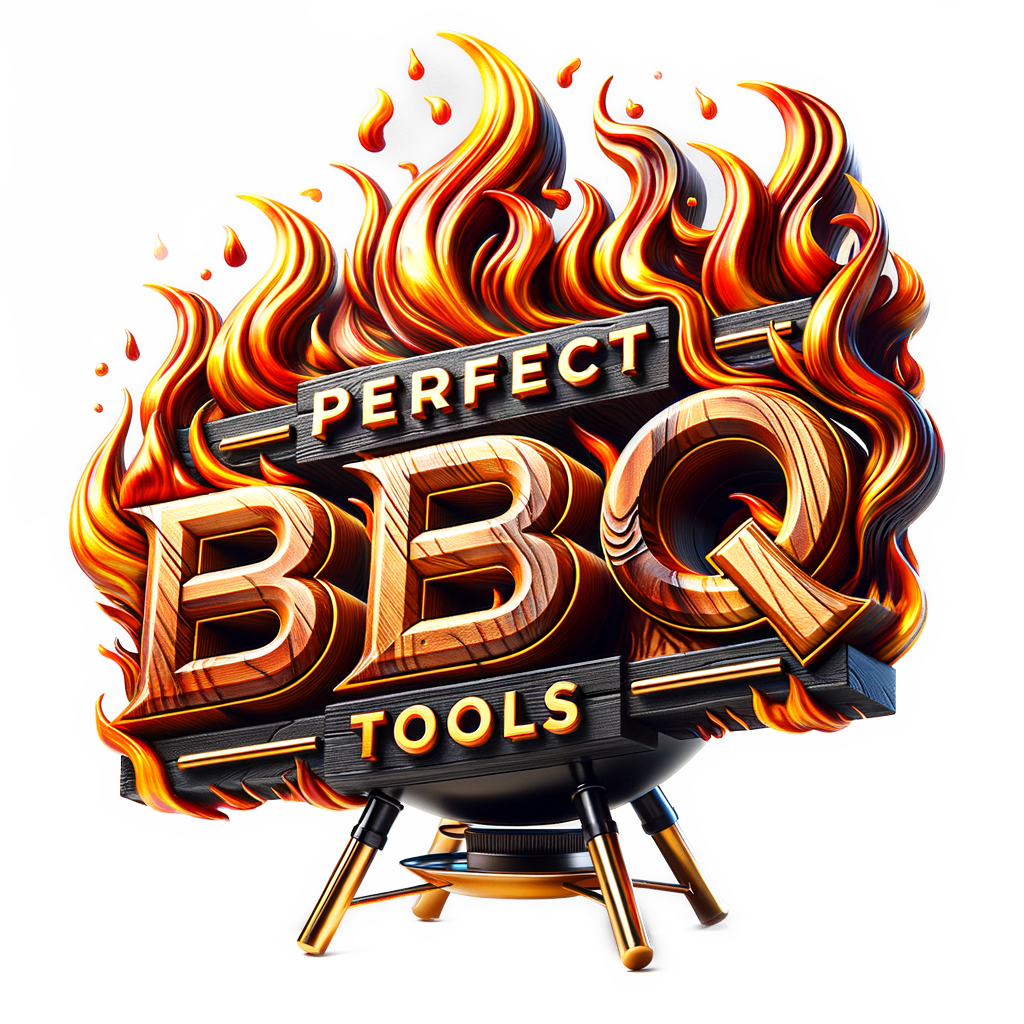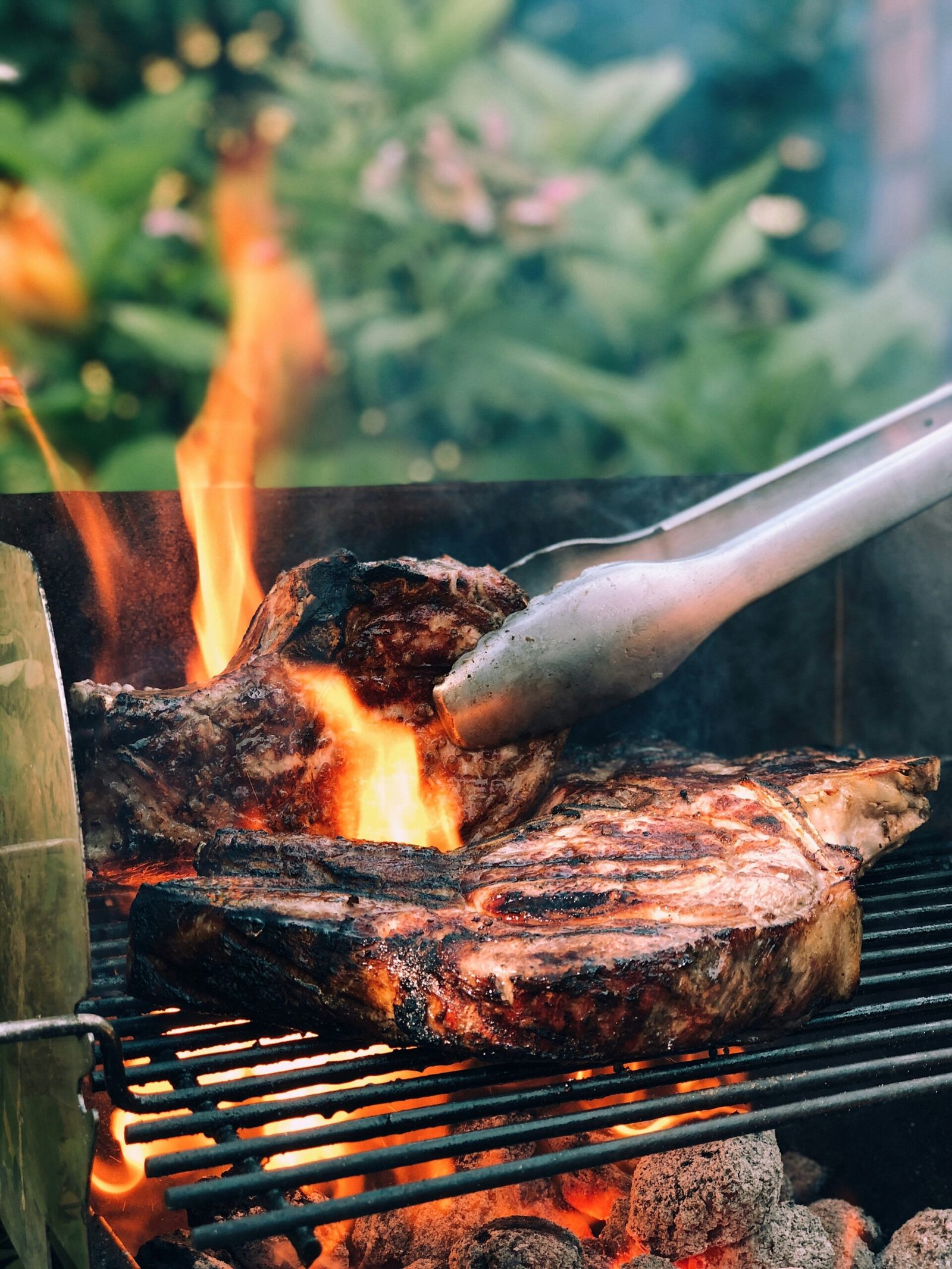You’ve just bought a shiny, brand-new barbeque grill and can’t wait to fire it up and start grilling mouth-watering burgers and sizzling steaks. But before you rush into your first grilling adventure, it’s essential to properly season your new grill. Seasoning not only enhances the flavor of your food but also protects your grill from rust and extends its lifespan. In this article, we’ll guide you through the simple steps of how to properly season your new barbeque grill, ensuring that you’re set up for grilling success right from the start. So grab your apron, gather your favorite spices, and let’s get started on this flavorful journey.
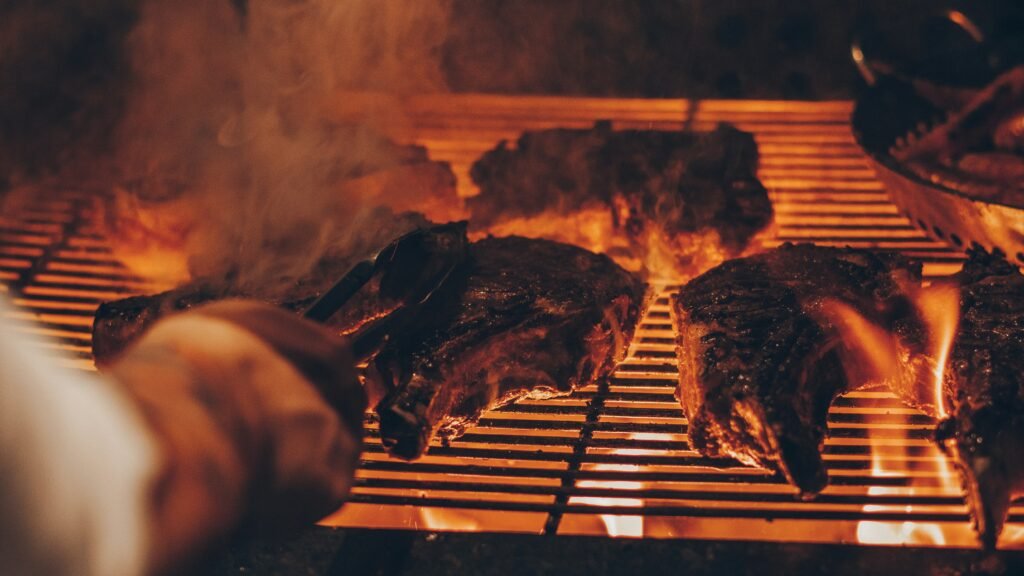
Knowing Why You Should Season A New Grill
Understanding the purpose of seasoning
When you first get a new grill, it is essential to season it before you start cooking on it. Seasoning helps create a nonstick surface and protects the metal from rust and corrosion. It also helps to enhance the flavor of your food by creating a barrier between the metal and the food, preventing any metallic tastes from transferring to your meals.
Recognizing the benefits of grill seasoning
Seasoning your grill not only improves its performance but also increases its longevity. By seasoning your grill, you create a protective layer that prevents food from sticking to the grates. This makes cleaning easier and ensures that your food will have beautiful grill marks. Additionally, seasoning your grill helps to prevent rust and corrosion, which can significantly extend its lifespan.
Identifying potential issues if not properly seasoned
If you neglect to season your new grill properly, you may encounter a few potential issues. First, food may stick to the grates, resulting in a frustrating cooking experience and potentially damaging your food. Additionally, without proper seasoning, your grill is more susceptible to rust and corrosion, which can lead to a shorter lifespan for your grill. Lastly, a lack of seasoning may result in a metallic taste in your food, which is not what you want when enjoying a delicious grilled meal.
Buying the Right Type of Grill
Identifying different types of grills
Before you can season your grill, it’s important to choose the right type of grill for your needs. There are several options available, including gas, charcoal, and electric grills. Each type has its advantages and considerations, so it’s crucial to understand the differences between them.
Gas grills are popular for their convenience and ability to heat up quickly. Charcoal grills offer a traditional, smoky flavor but require more time and effort to reach the desired cooking temperature. Electric grills are suitable for indoor use and are easy to clean, but they may not provide the same level of outdoor cooking experience as gas or charcoal grills.
Determining the best type for your uses
When selecting a grill, consider factors such as your cooking preferences, space availability, and budget. If you enjoy the smoky flavor of charcoal-grilled food and have ample outdoor space, a charcoal grill may be the best choice. On the other hand, if convenience and quick heat-up times are important to you, a gas grill might be the better option. Electric grills are ideal for apartment dwellers or those with limited outdoor space.
Understanding the differences in seasoning based on grill type
While the process of seasoning is similar for different types of grills, there are a few variations to keep in mind. Gas and electric grills typically have non-stick cooking surfaces, so the focus of seasoning is primarily on protecting the metal parts from rust and corrosion. Charcoal grills, on the other hand, require more thorough seasoning to build up a protective layer on the cooking grates, as they are prone to rust due to their exposure to open flames and the elements.
Preparing the Grill for Seasoning
The importance of initial cleaning
Before you can begin the seasoning process, it’s crucial to give your new grill a thorough cleaning. This step ensures that any manufacturing residues, dust, or debris are removed, allowing for a clean and safe cooking surface. Cleaning also helps to remove any potential contaminants that could affect the flavor of your food.
Which tools and cleaners are safe to use
To clean your grill effectively, you’ll need a few essential tools such as a grill brush, a mild dish soap, warm water, and a sponge or cloth. Be sure to choose a grill brush with sturdy bristles to remove any stubborn residue from the grates. Avoid using any harsh chemicals or abrasive cleaners that may damage the grill’s surfaces.
How to thoroughly rinse and dry
Once you have gathered your cleaning tools, start by rinsing the grates and other surfaces of the grill with warm water to remove any loose debris. Then, mix a small amount of mild dish soap with warm water and use a sponge or cloth to scrub the grates and surfaces thoroughly. Rinse off the soap with clean water and ensure the grill is completely dry before moving on to the next step.
Choosing the Right Oils for Seasoning
The best oil types for grill seasoning
When it comes to choosing the right oil for seasoning your grill, it’s important to select one with a high smoke point. Oils such as canola, vegetable, and peanut oil are great choices due to their ability to withstand high temperatures without burning or smoking excessively. These oils also provide a neutral flavor that won’t overpower the taste of your food.
How oil choice affects grill performance and longevity
Using the right oil for seasoning plays a significant role in the performance and longevity of your grill. The oil helps to create a protective layer on the metal surfaces, preventing rust and corrosion. It also provides a non-stick surface that makes cooking and cleaning easier. By using oils with high smoke points, you ensure that the oil won’t burn away or create unpleasant flavors during the seasoning process.
Where to buy suitable oils
You can find suitable oils for seasoning your grill at most grocery stores, usually in the cooking oil section. Look for oils labeled as having a high smoke point, as they will be the best options for grilling purposes. Online retailers can also be a convenient and reliable source for purchasing suitable oils if you prefer the convenience of shopping from home.
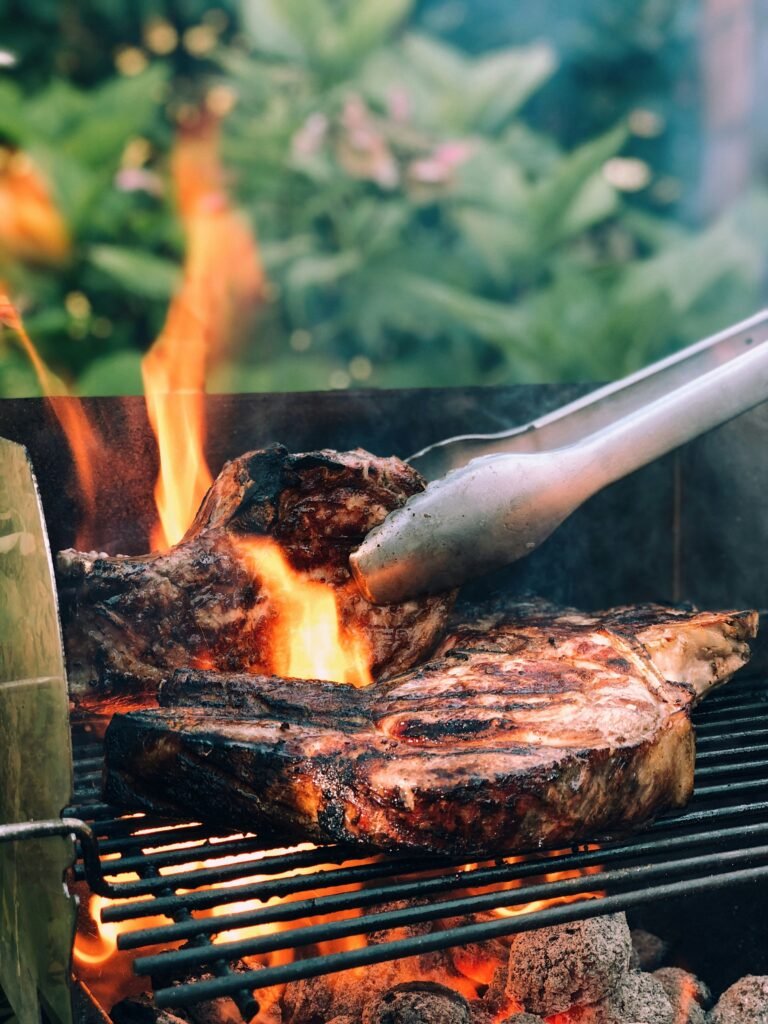
Applying the Oil Properly
How to apply the oil evenly
To apply the oil evenly, start by pouring a small amount onto a clean cloth or paper towel. Avoid using too much oil, as excessive amounts can lead to flare-ups and uneven seasoning. Once you have the oil on the cloth, use tongs or a spatula to hold the cloth and apply it to the grates or other metal surfaces. Make sure to cover the entire surface, including the edges and corners.
The right amount of oil to use
When it comes to seasoning your grill, less is often more. A thin, even layer of oil is all you need to protect the metal and create a non-stick surface. Using too much oil can lead to excessive smoke and potentially affect the flavor of your food. It’s better to start with a small amount and add more as needed.
What to do with excess oil
If you find that you have excess oil on your grill after applying it, simply use a clean cloth or paper towel to wipe away any pooling or drips. It’s essential to remove any excess oil to prevent it from dripping onto the flames or burners, which could result in flare-ups or a smoky cooking experience.
Heating the Grill for Seasoning
Understanding heat’s role in the seasoning process
Heat is a crucial component of the seasoning process as it helps the oil penetrate the metal surfaces. The high temperatures cause the oil to polymerize, creating a durable coating that protects the grill and provides a non-stick surface. Without proper heating, the oil may not bond effectively with the metal, resulting in an ineffective seasoning process.
Appropriate heating temperature
To properly season your grill, you’ll need to heat it to a high temperature. For gas and electric grills, preheat them to a temperature of around 400 to 500 degrees Fahrenheit. This temperature range allows for effective polymerization of the oil. Charcoal grills require a longer preheating time since they take longer to reach the desired temperature. Ensure that the coals are fully ashed over and glowing before proceeding with the seasoning process.
How long to heat your grill
The duration of the heating process will depend on the type of grill you have and its size. In most cases, preheating for about 15-20 minutes should be sufficient to achieve the desired temperature. However, it’s crucial to refer to the manufacturer’s instructions for specific recommendations on preheating times for your particular grill model.
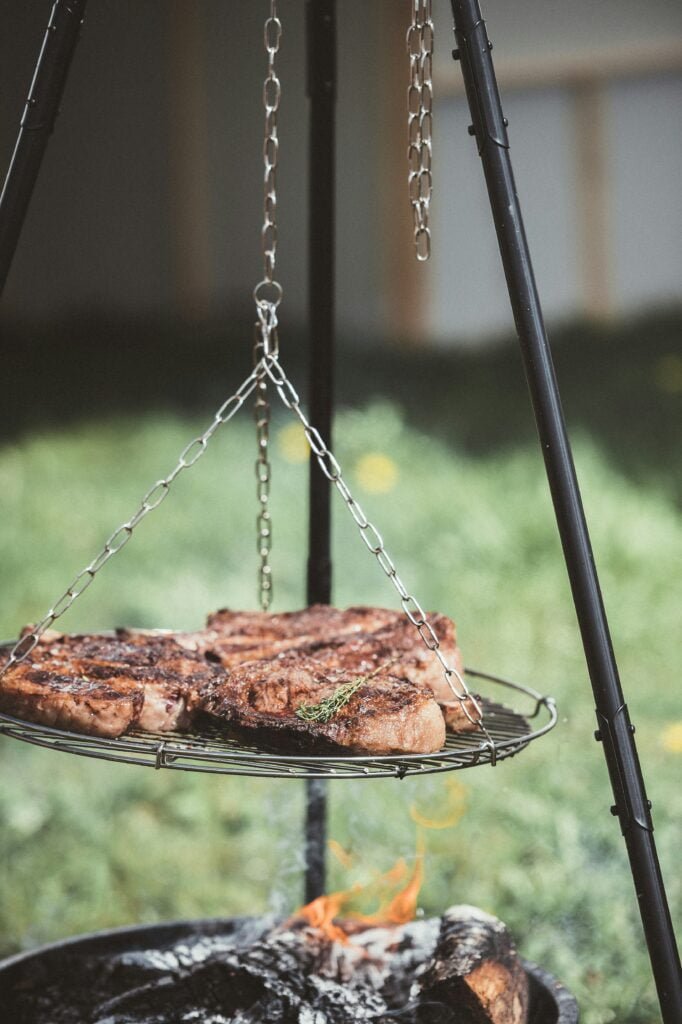
Cooling Down the Grill Post-Seasoning
Why cool down is important
Allowing your grill to cool down properly after seasoning is essential for your safety and the longevity of the grill. A hot grill can pose a burn risk, so it’s crucial to let it cool to a safe temperature before attempting to clean or move it. Cooling down also ensures that the oil coating has time to set and bond effectively with the metal surfaces, providing optimal protection.
How long to let the grill cool
The cooling time required will depend on various factors such as the type of grill, the temperature used during seasoning, and the ambient temperature. As a general rule, it’s best to wait at least 1-2 hours after the seasoning process before attempting to clean or use the grill again. This extended cooling period ensures that the grill is cool to the touch and that the seasoning has fully set.
Proper cool down procedure
During the cooling down period, it’s crucial to keep the grill uncovered and away from any flammable materials. Allowing air to circulate around the grill will help dissipate the heat and speed up the cooling process. Once the grill is cool to the touch, you can proceed with cleaning any excess oil or residue that may have accumulated during the seasoning process.
The Importance of Repeating the Process
How often to re-season your grill
While the initial seasoning is crucial, it’s not a one-and-done process. Over time, the protective layer of seasoning can wear off due to regular use and cleaning. As a general rule, it’s a good idea to re-season your grill at least once every season or whenever you notice the non-stick properties diminishing.
Signs your grill needs re-seasoning
There are a few signs that indicate your grill may need re-seasoning. If you notice food sticking to the grates more than usual, rust or corrosion starting to appear, or a metallic taste in your food, it’s a good indication that the seasoning has worn off, and it’s time to apply a fresh coat.
Long-term benefits of regular seasoning
Regularly seasoning your grill has several long-term benefits. It helps to maintain the non-stick surface, making cooking and cleaning more effortless. Seasoning also protects the grill from rust and corrosion, ensuring its longevity. Furthermore, the flavor-enhancing properties of seasoning provide a better overall grilling experience and ensure that your food tastes delicious every time.
Maintaining Your Seasoned Grill
Cleaning tips for seasoned grill
To maintain your seasoned grill, proper cleaning is essential. After each use, take a few moments to scrape off any residue or food particles from the grates using a grill brush. Avoid using any harsh chemicals or abrasive cleaning agents as they can strip away the protective seasoning layer. Instead, opt for gentle dish soap and warm water if necessary. Once cleaned, make sure to dry the grates completely to prevent any moisture from causing rust.
Proper usage to maintain seasoning
To prolong the life of your seasoning, it’s important to use your grill properly. Avoid using metal utensils that can scratch the grates and cause the seasoning to come off. Opt for non-metallic or silicone utensils that won’t damage the protective layer. Additionally, always preheat the grill before cooking to ensure optimal non-stick performance.
Storing the grill properly
When storing your grill, it’s important to protect it from the elements. If possible, store it in a dry, covered area such as a garage or shed. If you need to leave it outdoors, consider investing in a waterproof grill cover to shield it from rain, snow, and UV rays. Proper storage helps to maintain the integrity of the seasoning and prevents rust or corrosion.
Troubleshooting and Solving Common Issues
Dealing with common problems after seasoning
Even with proper seasoning, there may be some common issues that can arise. For example, if you notice excessive smoke or a strong burning odor during cooking, it may indicate that the oil used for seasoning has burned off. In this case, you may need to clean the grill and reapply a fresh coat of oil to remedy the issue. Additionally, if you encounter any food sticking to the grates, it could be due to an insufficient seasoning layer or inadequate preheating.
When to seek professional advice
In some cases, you may encounter more severe issues with your grill that go beyond regular seasoning maintenance. If you notice significant rust, corrosion, or damage to the grill’s structure, it’s a good idea to seek professional advice. A grill specialist or technician can assess the damage and provide guidance on any necessary repairs or replacements.
Knowing if you need to repeat the seasoning process
Over time, the seasoning on your grill may wear off, and you’ll need to repeat the seasoning process to maintain its performance. If you notice food sticking, rust, or a metallic taste, these are indicators that it’s time to reapply a fresh coat of oil and season your grill again. By periodically repeating the seasoning process, you can ensure that your grill remains in optimal condition and continues to provide you with flavorful meals for years to come.
In conclusion, properly seasoning your new grill is essential for its performance, longevity, and the taste of your food. Understanding the purpose and benefits of seasoning, as well as the potential issues that may arise from neglecting this process, sets the foundation for successful grilling experiences. By following the steps outlined in this article, including buying the right grill, preparing it for seasoning, choosing suitable oils, applying them properly, heating the grill, cooling it down, and maintaining the seasoning, you can enjoy countless delicious meals and make the most out of your grilling adventures. Remember to troubleshoot and seek professional assistance when necessary, and don’t forget to repeat the seasoning process periodically to ensure your grill remains in top-notch condition. Happy grilling!
